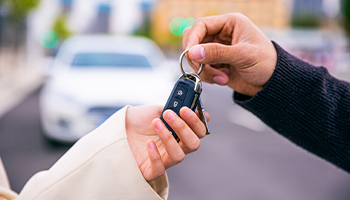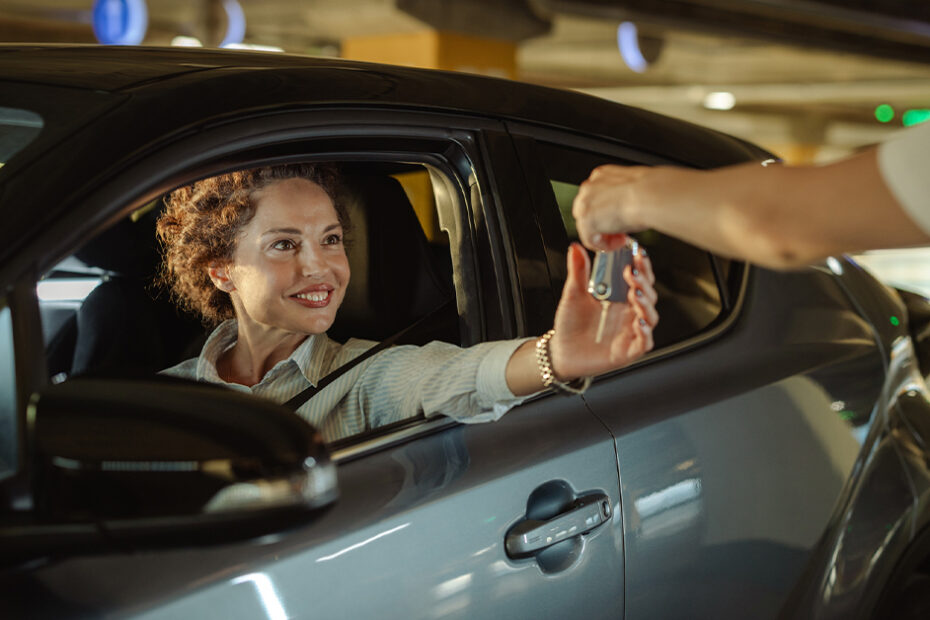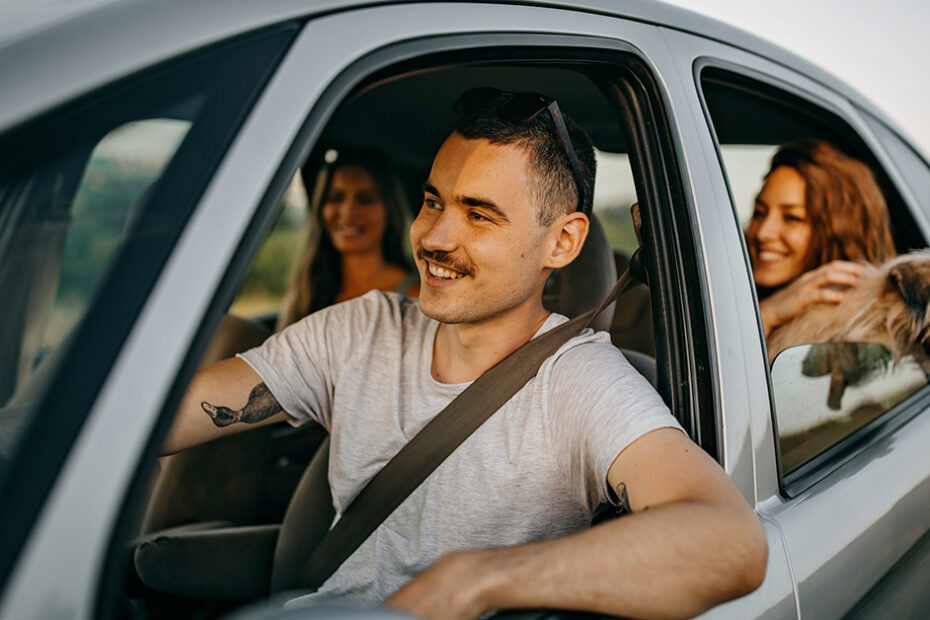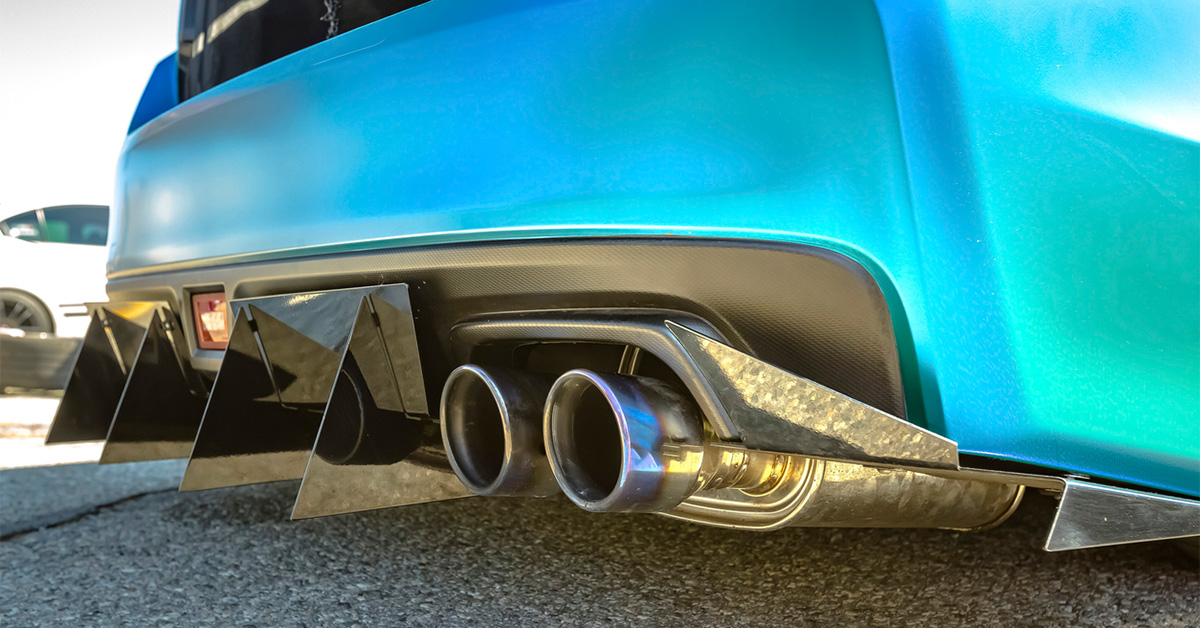Do you drive regularly but don’t own a car? Maybe you need a financial responsibility filing, borrow a friend’s car, or are in between vehicles at the moment. Whatever the reason, it’s important to know how you can ensure liability protection even when driving someone else’s car. Non-owner car insurance policy is a special type of insurance that provides liability coverage to people who do not own a vehicle but still need to drive occasionally. Let’s explore non-owner car insurance to see how it can help you protect your assets and even avoid a lapse in coverage.
What is Non-Owner Car Insurance and How Does It Work?
Non-owner car insurance provides liability coverage to licensed drivers who do not own a vehicle.

Unlike a standard car insurance policy, which is written to cover a specific car (or cars) and their owners, a non-owner policy covers you, the driver, when you are operating an eligible vehicle. If you cause an accident, the vehicle owner’s insurance acts as primary coverage and your non-owner policy becomes secondary if the damages exceed the owner’s limits.
For example, let’s say you are driving a friend’s car and cause an accident. The total amount of damages comes to $35,000, but your friend’s liability coverage caps at $30,000. If you have a non-owner policy with liability coverage, your policy can help cover the difference, up to your policy’s limits.
What Does Non-Owner Car Insurance Cover?
A typical non-owner car insurance policy includes the following coverages:
- Bodily Injury Liability: Covers injuries and resulting lost wages to others if you are legally determined to be at fault in an accident.
- Property Damage Liability: This pays for damage you cause to another person’s property in an accident, such as their vehicle.
- Uninsured/Underinsured Motorist Coverage (UM/UIM): Optional coverage that covers your injuries after an accident caused by a driver who does not have insurance or has insufficient insurance to cover your medical costs.
- Medical Payments or Personal Injury Protection: Coverage that may be included (if offered) to pay for your injuries regardless of who caused the accident.
Since non-owner car insurance provides coverage to those without a car, these policies exclude physical damage coverage, such as comprehensive and collision coverage. Additionally, it is important to ask about the ‘regular use’ definition in the non-owner policy. Some carriers consider driving the same car more than 24 hours in a month to be ‘regular use’ and will exclude coverage.
Do I Need Non-Owner Car Insurance?
Non-owner car insurance may not be a requirement for everyone, but there are specific scenarios where it may be necessary or highly beneficial.

You often borrow vehicles: A car insurance policy follows the car in most cases. However, if you cause an accident in someone else’s car and the damage costs exceed the owner’s policy limits, you can become responsible for the rest. Non-owner car insurance helps cover your finances in these scenarios.
You want to avoid an insurance lapse: If you are temporarily in between cars, purchasing a non-owner policy shows continuous coverage and helps you avoid a lapse in coverage, which could lead to higher insurance rates in the future.
You need an SR-22 or FR-44 form: Some states require an SR-22 or FR-44 to reinstate your driver’s license after a major violation, such as a DUI. These forms prove that you have the minimum amount of coverage required in your state. If you do not own a car due to your violation, purchasing a non-owners insurance policy is often the only way to meet your state’s requirements.
When Would I Not Need Non-Owner Car Insurance?
Although some situations may require you to purchase non-owner car insurance, others may not.
You borrow a household car: Most car insurance policies require the policyholder to include every licensed adult driver in the household. If you regularly use a household member’s car, you must be listed on the car’s primary policy. In this situation, you do not need to purchase a separate non-owner policy.
You do not drive: If you don’t own a car and don’t borrow or rent cars often, then it may not make sense to pay for a non-owner car insurance policy.
How Much Does Non-Owner Car Insurance Cost?
One appealing aspect of non-owner car insurance is that it is relatively affordable compared to a standard auto insurance policy. Since your policy covers only your liability, and not the costly physical damage from an accident, premiums are often lower. However, there is one key exception. If you are purchasing a policy and need your insurer to file an SR-22 or FR-44, your rates will likely be higher due to your driving history.
Even though a non-owner policy differs from a traditional policy, the typical factors that affect your rate still apply. This includes factors such as your driving history, coverage limits, location, insurance history, and age.
Can I Purchase Car Insurance If I Don’t Own a Car?
Purchasing non-owner car insurance is generally the same as purchasing a standard policy. However, the key difference is that not every insurer offers non-owner policies. Once you do find a company, you’ll be able to get a quote and ultimately purchase your policy online, over the phone, or in person depending on the company.
Here are a few tips to consider when purchasing a non-owners insurance policy:
- Check with your existing insurer: If you currently have renter’s or homeowner’s insurance, check with your provider to see if they offer non-owner policies. Many companies offer multi-policy discounts when you bundle one or more policies, which could help you save.
- Determine appropriate liability limits: Your state’s minimum insurance requirements may not be enough to fully cover your assets. Before getting started, it’s important that you research and analyze your finances and assets to determine the level of coverage you need.
- Be honest about SR-44/FR-44 requirements: If you must file an SR-22 or FR-44 with your state to reinstate your license, you must disclose this upfront. Consider looking for companies that specialize in high-risk coverage, as they will likely have the most competitive rates for these types of policies.
- Get quotes from multiple companies online: Non-owner insurance policies are not standard, so pricing can fluctuate greatly from one carrier to another. Use online resources like AIS to compare car insurance quotes from multiple providers before settling on an insurer to find the best deal.
AIS Can Help You Find the Coverage You Need
Whether you are actively renting cars, strategically avoiding a lapse in coverage, or required to file an SR-22 to reinstate your license, a non-owner policy is essential for protecting your finances and fulfilling your legal obligations. Do not risk a significant liability claim or unnecessary premium hikes down the road simply because you’re between vehicles.
With over 55 years of experience in the insurance marketplace, AIS can guide you through the process and help you secure the best rate possible. Call our insurance specialists any time at (888) -772-4247, or get a free quote online today!
The information in this article is obtained from various sources and offered for educational purposes only. Furthermore, it should not replace the advice of a qualified professional. The definitions, terms, and coverage in a given policy may differ from those suggested here. No warranty or appropriateness for a specific purpose is expressed or implied.


